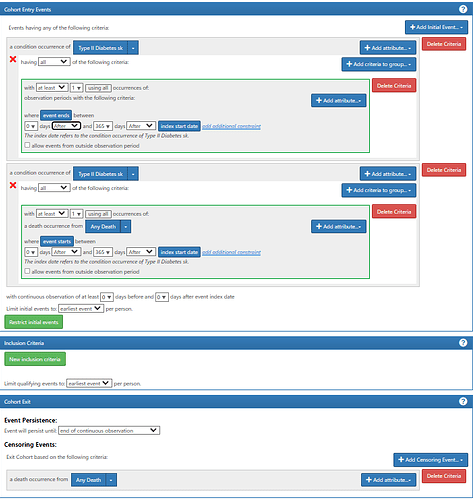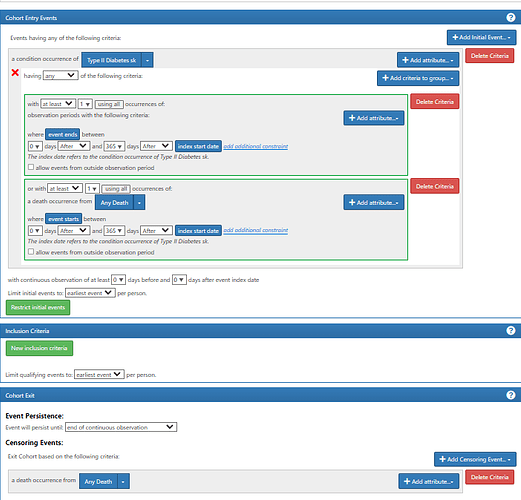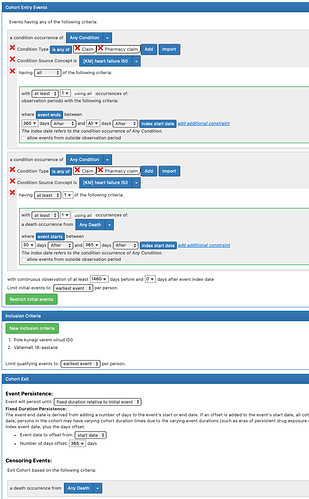When defining a cohort in Atlas, users can specify the required length of the observation period before and after the index date. For example: “with continuous observation of at least 0 days before and 365 days after the event index date.”
This is helpful for studying care pathways, as it allows us to focus on what happens during the year following the index event. However, we’d also like to include people who died before reaching the full 365 days of follow-up. This is a very important and exceptional outcome of a treatment. Currently, this seems an impossible exception when defining the requirement for continuous observation.
We can add death as a censoring event, which only adjusts the cohort’s end date but does not affect the inclusion criteria.
It would be beneficial to have an option like: “with continuous observation of at least 0 days before and (365 days OR DEATH) after the event index date” when defining cohorts.
The closest thing to that sort of OR is in cohort entry events. You could define it as such (i’m assuming your index event is a condition):
So what I did here is I said you enter the cohort with T2DM, and the first entry event says you must have an observation period that ends at least 365d after the diagnosis start date. The second one says you can also enter if you have death within 365d after.
I specify that you’re censored at death so that those people that entered because of #2 should censor at death.
So, you can leave the ‘prior observation’ to 365 (if that’s what you want) but you will set to post-observation to 0, and rely on the nested ‘observation period’ criteria to exclude those people who have
Here’s another way to do it, using OR nested criteria:
In this example: You enter on T2DM IF and only IF you either have an observation period that ends 365d after the T2DM diagnosis OR there is a death event in the first 365 days.
Yes, that worked! Thanks, Chris!
For documentation, here is our final cohort definition (slightly modified from the initial cohort):
1 Like


